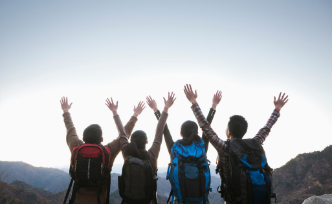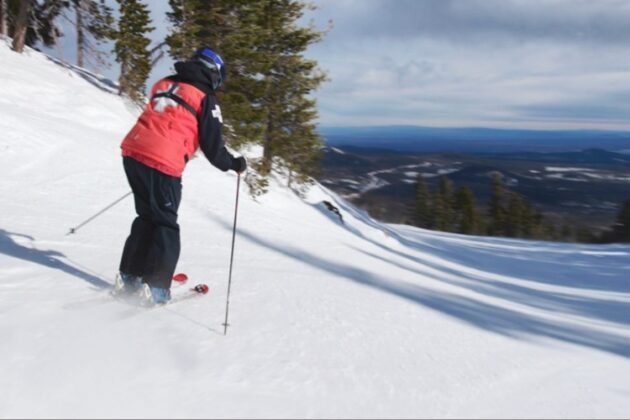
Orthopedic surgeon and upper extremity specialist, Dr. James Verheyden, has long been involved in guiding local Boy Scout troops in Central Oregon on various backpacking excursions throughout the Northwest. With a vast medical knowledge and a love for ultralight backpacking, Dr. Verheyden teaches Boy Scouts how to properly prepare for extended backpacking excursions and what to bring in a first aid kit. Here are Dr. Verheyden’s top tips for a successful and safe backpacking experience.
- The most important thing you can bring in your first aid kit is knowledge. Knowledge is power, and the more you know, the better first responder or first aid provider you will be.
- The second most important thing is prevention. There is a saying that an ounce of prevention is worth a pound of cure. This is even more important when you’re doing ultralight backpacking – a little prevention can go a long way.
Here are some different preventative techniques and tips to hopefully minimize any injuries, hazards, or problems you have on the trail.
Stay hydrated –
Dehydration is probably the most common medical problem or medical issue Dr. Verheyden sees on the trails. Severe dehydration limits and prevents us from enjoying backpacking’s full experience.
Fuel your body –
Before any big excursion it is very important to eat a large, nutrient dense breakfast in the morning. Forgetting to eat, or not eating enough, will lead to depleted energy levels early on in your excursion.
Avoid too much sun exposure –
Sunburns, especially in youth, can cause a significant amount of skin damage and greatly increases that individual’s risk for skin cancer in the future. Wear a broad brim hat or bring an ultralight umbrella while hiking to keep the sun off of your face. Apply ample amounts of sunscreen, SPF 50 or higher a few times throughout the day. Don’t forget your lips! Apply lip balm with SPF regularly.
Care for your feet –
- Taking care of your feet is one of the most important things you can do to have a successful hiking or backpacking experience.
- Wear proper shoes. Avoid heavy boots and opt for a nice trail running shoe that breathes well.
- Good socks are just as important. Darn Tough socks are nice wool socks that stay warm even when they’re wet.
- It’s critical to keep your feet clean! If you come to a lake or stream and your feet are tired, take off your shoes and socks and soak your feet in the ice cold water. This can ease swelling in your feet and helps minimize the risk of blisters.
- To further prevent blisters, keeping mole skin or duct tape in your first aid kit, or a slippery ointment such as petroleum jelly can all be used in various ways to keep blisters away.
Hiking poles –
Dr. Verheyden’s scouts typically do not go on ultralight backpacking treks without hiking poles. Hiking poles minimize pressure and irritation on your feet and your knees, and greatly improve hiking efficiency.
Proper hygiene –
- For extended backpacking trips, don’t forget to floss and brush your teeth daily. If you go days without taking care of your teeth, it can cause significant gum issues and teeth problems.
- Try to take a shower every night. Use biodegradable soap and shampoo every evening. This helps keep your sleeping bag clean, and you’ll sleep better too!
- Use hand sanitizer after going to the bathroom and before eating to avoid dysentery type reactions.
- Trim your toenails before your trip, or bring toenail clippers with you. Too long of toenails can cause blisters, but too short of toenails can be uncomfortable. Try to trim your nail flat across.
- Tweezers are great to bring along to remove things such as slivers or other foreign bodies.
What should be in your first aid kit –
Knowledge –
- Know CPR – If you are hiking with anyone or come upon another hiker in distress, knowing CPR is an important skill to have that could save someone’s life. It’s always a good idea to refresh your knowledge of CPR before heading out on the trail.
- If someone on the trail has had something foreign puncture their body, do not remove it. Pulling it out can do greater damage, so leave it in and seek medical care as quickly as possible.
- To treat thermal burns, if you are near a lake or a river, submerge the burned area into cold water as quickly as you can and for as long as you can, ideally 20-30 minutes. You do not want to stay in cold water for too long, as it can cause hypothermia.
Important items –
- Carry a dorsal padded aluminum foam splint which is super light and has many uses. They can be trimmed to your desired length.
- Carry a variety of Band-Aids of various sizes and shapes.
- Carry a number of alcohol wipes which can be used to sterilize the skin or other instruments.
- Carry packs of triple antibiotic ointment which you can use for various minor injuries.
- When backpacking, it’s a good idea to bring Micropur tablets to sterilize water just in case you have an issue with your water filters.
- Carry some cold and flu type medicine along with Claritin in case someone has some allergic symptoms or develops seasonal type allergies. Pseudoephedrine nasal decongestant tablets is also nice to have on-hand if someone has a runny nose.
- Bring pain relieving cream in case someone has a small injury.
- Bring a number of Tylenol. Take one or two 500 milligram tablets every six hours as needed if someone has a fever, aches, or pain.
- Ibuprofen works wonderfully as an anti-inflammatory. If someone has an injury, you can alternate ibuprofen and Tylenol.
- Benadryl works for anaphylactic reaction such as swelling or hives, but keep in mind, it can cause drowsiness.
- Carry a number of aspirin in case you encounter anyone on the trail having heart attack-like symptoms.
- Eye drops are good to have on-hand in case someone develops a corneal abrasion, has a foreign body in their eye, or has allergy symptoms.





